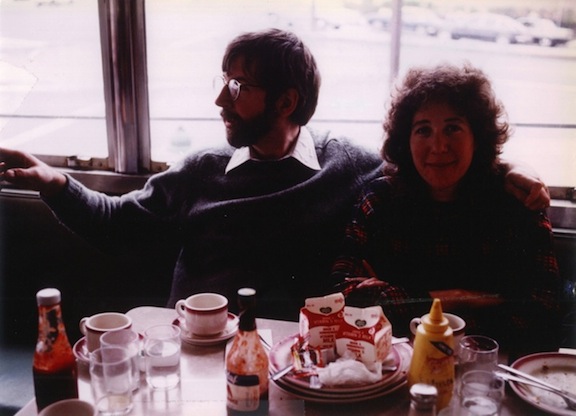There was no real “physical” miracle here –
So this shouldn’t be seen as qualifying Jesus as “God.”
However, there was a profound teaching –
About sharing.
As the day wore on –
The disciples started wondering
How the thousands of people who had come to hear Jesus were going to be fed.
At first, the disciples considered going out and buying food at nearby villages –
But, instead, Jesus said: “You feed them” –
Instructing his disciples to start sharing their food as an example
Of how followers of Jesus should respond to a common need.
This particular teaching, at the time, was such a striking “symbolic action”
That, eventually, it became established in Christianity as the Eucharist –
Illustrating that followers of Jesus, when meeting to share teaching about God,
Should also share a meal-in-common – that included everyone –
Men and women, poor and rich, old and young.
The Gospels refer to 5,000 men being fed,
But the heart of the story actually centers on the biblically-invisible women –
Without which there would have been no food to share.
The men came to listen to Jesus without (like men sometimes do) thinking ahead about food –
While the disciples only started becoming concerned about it later in the day –
But the women had already planned ahead
And brought enough food to feed their families and friends.
Jesus intuited this, of course, because his soul was both male and female.
This first “all-people” spiritual dinner turned into a big outdoor picnic –
Celebrating God’s word as taught by Jesus –
Along with the sharing of food by the women enabling everyone to be fed –
With plenty of leftovers.
This was a teaching about spiritual democracy –
That all persons, of whatever age or sex, stand equally before God –
Symbolized by their common sharing of food.
There was no “magic” here at all –
The teaching was simply that Jesus’ followers, using their initiative and faith,
Should simply share what they had with others –
(As opposed to the segregated eating by classes and sexes common at the time).
This teaching eventually was included in all four Gospels – establishing a new social pattern for Jesus’ followers –
Ultimately becoming the Eucharist (which, unfortunately, over time, has largely lost its original meaning).
Neither the Christian Church nor the rest of the world, has yet to fully embrace this teaching –
That followers of Jesus (whether Christian or not) are called upon
To start the reign of God –
By starting to share what they have.
If America, for its part, could drop its primitive faith and reliance on military and economic power
And start sharing what it has with the rest of the world
Wouldn’t we – especially under the leadership of women (who respond naturally to people’s physical needs) –
Be capable of successfully feeding, clothing, and housing all eight billion of us?
Wouldn’t that be the miracle God wants –
For human beings to thoughtfully and lovingly share the world’s resources with one another.
As I said, Jesus didn’t believe in physical miracles like the “magical multiplication” of loaves and fishes –
But he did believe in spiritual miracles involving the kinds of changes possible for a human heart
If just given a little “spiritual push”.
